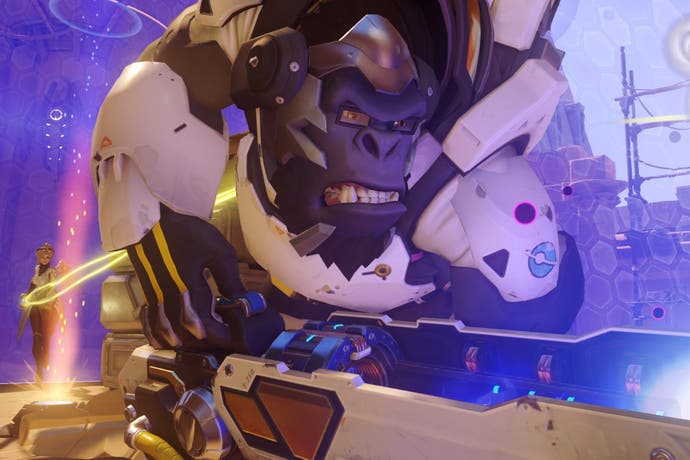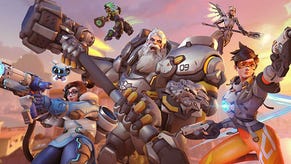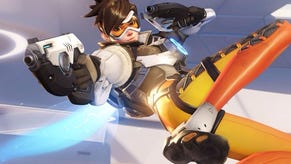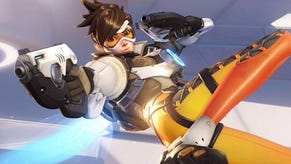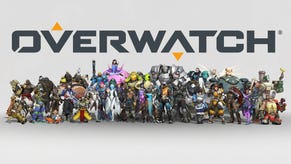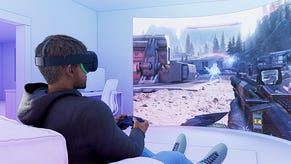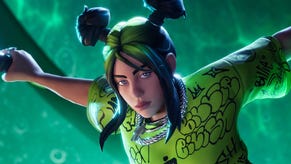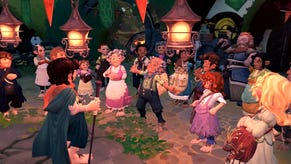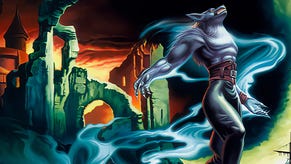Blizzard details Overwatch, its upcoming competitive first-person shooter
"We wanted to give players other things to do than put crosshairs on targets."
Blizzard is a known quantity in the video games industry having delivered such megahits as World of Warcraft, Diablo, Starcraft, and most recently Hearthstone, but its announcement of Overwatch, a competitive first-person shooter, was met with equal parts excitement and trepidation. Blizzard's never made a shooter before and the genre is already overcrowded as is. Could the studio that made Kerrigan a known gaming icon compete in the same space as Team Fortress 2, Call of Duty and Halo?
The company behind WoW is confident that it can as it suggests Overwatch will feel unlike other games currently occupying this space. "Back in 2002 with World of Warcraft, we skimmed a lot of comments [saying] 'what business does Blizzard have in the MMO category? You guys don't know what you're doing. You're the RTS company!' But we figured it out, with your guys' help, and we plan to do that same thing with the shooter," said game director and Blizzard vice president Jeff Kaplan at a BlizzCon panel earlier today.
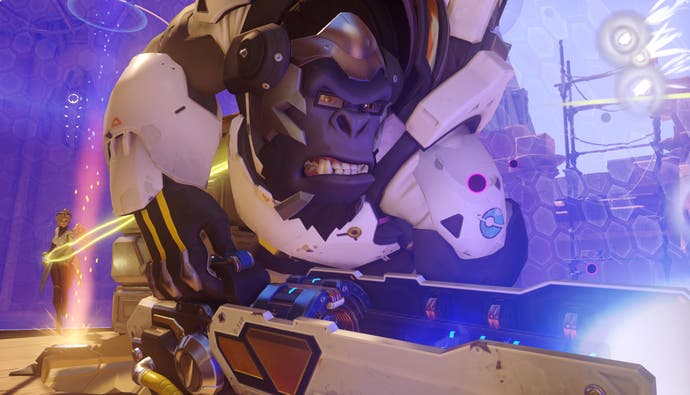
"What we like to do is look at genres we love and sort of revere and think of all the ways that we can bring out the best elements of those genres," he added.
That's all well and good, but what does Kaplan mean by that? What separates Overwatch from the hundreds of other shooters out there? According to Blizzard, it's accessibility.
"We like building product for everybody, at all levels of play," said senior vice president of story and franchise development Chris Metzen. "Approachability is something that is very, very important to us."
"We wanted to make the game less lethal," stated Kaplan. "You will die. That's part of the game. We're just hoping that you die less frequently than in current modern military shooters."
"We wanted to give players other things to do than put crosshairs on targets," he added. "We know not everyone is great at that and that's what drives a lot of people out of other shooters."
So how is Blizzard removing the importance of aiming proficiency in a shooter, you ask? By giving players more to do than simply kill each other. Overwatch won't feature a deathmatch mode and every mode will be objective-based, where players attack or defend a place or object.
Furthermore, certain characters have skillsets outside of offense. Some can strategically place turrets, others can deploy portals to help their teammates jump into the fray quicker, and others can heal their comrades.
Adding to Overwatch's accessible nature is the fact that you can choose your player character after each life. If you figure out one character's playstyle isn't your bag, you're not going to be stuck with them for the next 10 minutes. If you think another character would be better situated for the current tide of battle, feel free to swap them out.
Teamwork is very important in a game that's entirely objective-based and Blizzard did a lot of testing before it settled on its six vs. six template. Initially, it tried allowing larger teams.
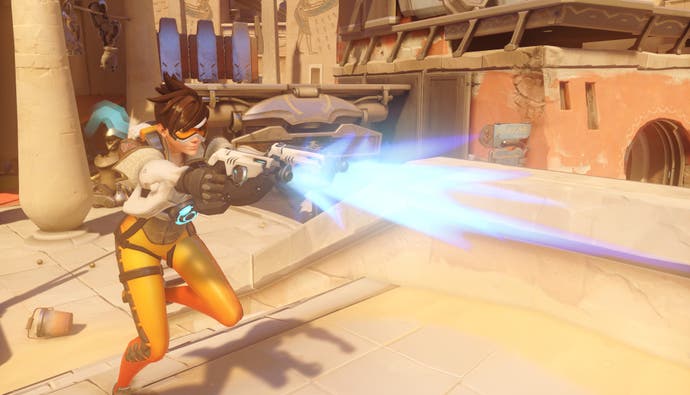
"The more we played with these larger team sizes, the less important we felt. The more inconsequential everything felt. It was kind of chaotic," explained Kaplan. So the developer tried swinging the other way and limiting teams to just a few players. "The thing that we didn't like about those team sizes was you were actually too important to your team. You were so critical that maybe you were having an off day and suddenly your team hated you and were yelling at you." So six vs. six struck a happy balance, it would seem.
When it comes to Overwtach's story, Metzer noted that it would be deep, but separate from the game itself and possibly limited to extraneous information on the website. "We felt that this time around trying to over-storify these sorts of gameplay spaces didn't serve either side," he said of the narrative and gameplay. That being said, he was adamant that "Overwatch has a lot of story," even if it's not something that manifests itself in PvP battles.
Still, there's a lot there for people who get into the lore that Blizzard is so known for crafting. In fact, you can read up on the 12 already revealed characters' backstories on the official Overwatch site right now. There's even tutorial videos and detailed breakdowns of each fighter's abilities.
Overwatch seems like the rare uphill challenge for Blizzard, a studio that no one would describe as an underdog. There's plenty we still don't know about Overwatch - Blizzard has stayed mum on its business model and platforms for one - but based on its initial showing, the developer seems poised to bring its two-plus decades of expertise to a new genre. That in and of itself makes it an interesting prospect.
